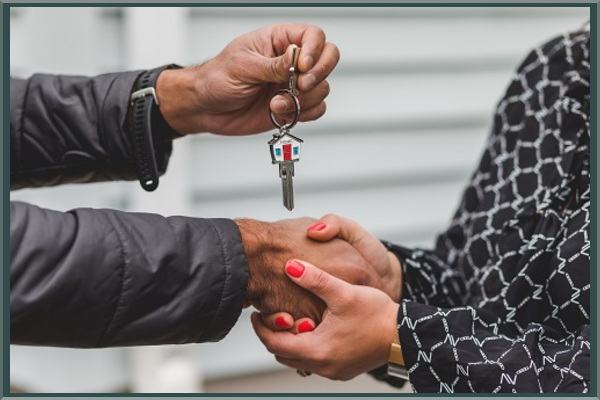Should I Rent or Buy a House in 2025?

The question of whether to rent or buy a home in 2025 is as old as the housing market itself. Everyone from your well-meaning uncle to financial pundits on TV has an opinion. Some argue that renting is “throwing money away,” while others warn that buying too early can leave you house-poor and stuck. The truth is more nuanced: there’s no one-size-fits-all answer. Your finances, lifestyle, and local market conditions all play a role in determining whether renting or buying makes sense for you.
Understanding the Core Tradeoff
At its core, the rent-versus-buy decision is about balancing flexibility and mobility against stability and equity building. Renting offers freedom: if your job changes, your family grows, or you simply want to move, you can usually do so at the end of a lease. Buying, on the other hand, roots you in place— for better or worse. Ownership gives you stability, control over your space, and the chance to build wealth, but it also ties you to a property that may or may not appreciate the way you hope.
Rent isn’t “throwing money away.” It’s buying flexibility while you stack cash and optionality. Buying wins when your time horizon and cash flow are truly ready—not before.
The Financial Angle: Beyond the Mortgage
It’s tempting to compare monthly rent against a monthly mortgage payment and assume the cheaper option wins. That’s a mistake. Homeownership carries a hidden ecosystem of costs:
- Property taxes (often 1–2% of the home’s value annually, higher in some areas)
- Insurance (homeowner’s, sometimes flood or earthquake)
- Maintenance & repairs (budget 1–2% of home value per year)
- Closing/transaction costs (5–8% on purchase and again on sale)
Renting folds many of these into one predictable payment, leaving the landlord to worry about repairs and rising premiums.
Example: A $250,000 home with a $200,000 mortgage at 6.5% interest might be about $1,264 in principal & interest. Add ~$300 taxes, ~$100 insurance, and ~$250 maintenance reserve, and the true monthly looks closer to $1,900. That’s very different from a surface-level $1,200 rent comparison.
Homeownership is a wealth engine only when fueled by time horizon and reserves. No cushion + short stay = an expensive lesson; rent deliberately until the math favors you.
Building Equity vs Preserving Liquidity
Buying a home is often described as “forced savings.” Every month, part of your payment chips away at principal, increasing your stake in the property. Over time, appreciation plus loan pay-down can build real wealth. That’s the upside.
But liquidity matters too. Money tied up in a down payment and closing costs is money you can’t invest elsewhere. In strong markets, the tradeoff works in your favor. In flat or declining markets—or if you must sell early—you can come out behind.
Rule of thumb: If you expect to stay 5–7 years, buying tends to beat renting financially. Anything shorter, and the friction costs of buying/selling may outweigh equity gains.
Lifestyle & Flexibility Factors
- Job stability: In volatile fields, renter flexibility may be worth more than potential equity.
- Family needs: Schools, yard space, and room to grow often make buying attractive.
- Freedom vs responsibility: Some enjoy renovations and upgrades; others prefer to call the landlord when the water heater fails.
- Location certainty: Love your city and neighborhood? Ownership fits. Unsure if you’ll stay? Renting buys time.
Market Conditions Matter
Real estate is local. What makes sense in Phoenix may not apply in Pittsburgh.
- High-growth markets: Buying can supercharge equity because values appreciate faster than average.
- Flat/declining markets: Renting often provides better value and lower risk.
- High rent-to-price cities: Buying can look better long-term as rent inflates faster than mortgage costs.
- Low rent-to-price areas: Renting may remain cheaper for years, freeing capital for other investments.
Quick test: Check your area’s price-to-rent ratio (median home price ÷ annual rent for a similar property). Ratios < 15 often favor buying; > 20 lean toward renting.
Psychological & Emotional Value
It isn’t all math. Owning delivers pride, creative control, and stability for kids. Renting offers less stress, no maintenance, and freedom to redirect energy and money toward travel, business, or other experiences. Ask: Which option aligns with your values and gives you peace of mind?
Final Thoughts
The right choice depends on your time horizon, financial health, and lifestyle priorities. Renting provides flexibility and lower upfront costs—ideal for people in transition or uncertain markets. Buying creates long-term wealth potential and personal stability—provided you’re prepared and committed to staying put. As you weigh whether to rent or buy a house in 2025, crunch the numbers honestly, consider your lifestyle needs, and choose the path that fits you, not the crowd.
More Smart Home Buying and Renting Guides
🏡 Choosing the Right Neighborhood
Use commute tests, school checks, and micro-comps to pick a location that fits your life and your budget.
🔎 House Hunting
Use a plan to rank homes, compare must-haves, log pros/cons, and separate excitement from value so offers stay strategic.
🏠 Attend Open Houses
Tour back-to-back to calibrate must-haves, spot tradeoffs, and learn price-to-condition fast—before you write an offer.
Home > Real Estate Articles >> Real Estate Articles for Buyers >> Rent or Buy

